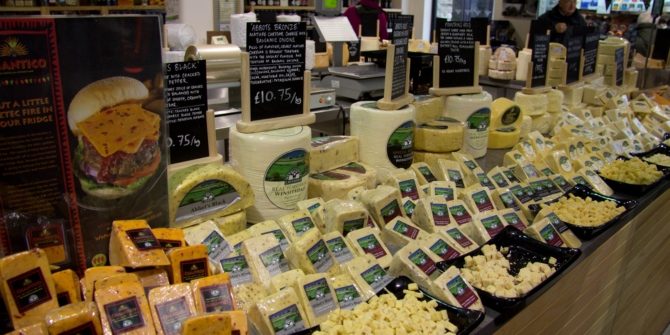
The countryside is generally perceived as a quiet and restrained place, and yet it has a long history of rebellion, riots and uprising in response to external pressures and changes. The Rebecca Riots in west and mid-Wales which lasted from 1839 to 1843 have gone down in history as a period where farmers took direct action at the perceived unfairness of toll road fees on the back of a slump in agricultural commodity prices. While the toll roads and gates were the focus, wider issues of poverty and tithes imposed by the Church came into play. The first protests were noisy demonstrations, but they later turned violent and at least one person was killed in the ensuing protests. The Rebecca Riots did not achieve rapid change, but they demonstrated the power of mobilised rural communities whose concerns were galvanised around a key issue.
Rural voices have been raised many times since, most notably in the fuel protests of 2007 where farmers and hauliers blockaded oil terminals and rolling roadblocks slowed traffic on motorways. While this tactic proved effective, in that the government revisited the fuel tax, it did little to endear farmers to the wider community. However, it was the dairy crises of 201x when farmers themselves returned to direct action – which arguably raised their profile with the public. Angered by the falling prices paid by processors and supermarkets even as input prices rose, farmers acted firstly by blocking access to processors, and then moved their protest to the supermarkets. Shoppers watched farmers empty shelves of milk cartons and parade banners demanding fair prices for their produce. Pressure was brought to bear on the supermarkets and a series of premium payment programmes followed.
Now, as sheep farmers face the possibility of a no-deal Brexit, the UK may again hear their voices – but will the public hear them and bring pressure on the government? While pretty much all of the agricultural sector is vulnerable under no-deal conditions, it is the sheep and beef industry that stands to suffer most, with upland farmers particularly badly affected. While many farmers voted for Brexit in the belief the industry would become less regulated and that farm support payments would continue or possibly become more generous, the reality appears to be somewhat different. They now face an end to the basic payment scheme which supports farmers and is particularly important in marginal areas such as the uplands. The government’s proposed environmental and public goods scheme is more generous, but will also be more exacting, and payments only reflect the work which can be achieved on a property so will vary according to the landscape and opportunities for conservation. If tariffs are imposed it is likely that the cost of machinery, inputs and feed will rise.
The impact on the market is mostly the threat to livelihoods. The AHDB (Agriculture and Horticulture Development Board), a levy board funded by farmers and growers to promote good management of the industry, has produced several scenarios which estimate that upland beef and sheep farmers are potentially looking at a revenue fall of £10,548 per year under a no-deal scenario. Average upland farm incomes are currently around £28,300. A no-deal Brexit would mean tariffs of 48 per cent on lamb exports and 84 per cent of beef, effectively cutting off the EU market which is highly significant to UK agriculture – taking up to 90 per cent of some exports. The government is exploring zero tariffs on imports, which would mean huge inflows of products with a lower cost basis into the UK. The resulting glut of product in the UK would further drive down prices. Smaller losses are predicted for lowland farmers; however, across the sector the picture is one of economic decline.
The government has responded to these scenarios with promises of financial support, but there is little clarity on eligibility, level of support or how long it would last. However, the biggest challenge may be the general public. How will they react to special support packages for farmers when other sectors are in need, particularly with uncertainty over food prices? We already know that although the consumer often cites origin as important in their choices, they are generally motivated by price. Food patriotism is rare except when health concerns are evident. So what choices do farmers have? What of direct action? In previous protests there has been a focus on key protagonists – oil refineries, dairies, supermarkets. Who would be the target in farmer protests, and given the already promised support from the government, how would this play with the public? This is complicated further by repeated polling of farmers showing continued support for Brexit, with nearly half happy with a no-deal Brexit. Whatever the outcome, the impact on communities, relationships and environments will last many years.
♣♣♣
Notes:
- This blog post appeared first on LSE Brexit.
- This blog post gives the views of its author(s), not the position of LSE Business Review or the London School of Economics.
- Featured image by Ian Balcombe, under a CC-BY-SA-2.0 licence
- Before commenting, please read our Comment Policy
 Richard Byrne is a senior lecturer at Harper Adams University. His research interests relate to external factors influencing land management and agriculture. His scholarship is focussed primarily on the effect of organised crime on agricultural systems and the impacts of conflict on agricultural economies and their subsequent recovery. His research and practical experience has seen him travel widely in West and Sub-Saharan Africa as well as Afghanistan and Myanmar. He is an expert panel member on food and agriculture for the Global Initiative against Transnational Organised Crime based in Geneva.
Richard Byrne is a senior lecturer at Harper Adams University. His research interests relate to external factors influencing land management and agriculture. His scholarship is focussed primarily on the effect of organised crime on agricultural systems and the impacts of conflict on agricultural economies and their subsequent recovery. His research and practical experience has seen him travel widely in West and Sub-Saharan Africa as well as Afghanistan and Myanmar. He is an expert panel member on food and agriculture for the Global Initiative against Transnational Organised Crime based in Geneva.





